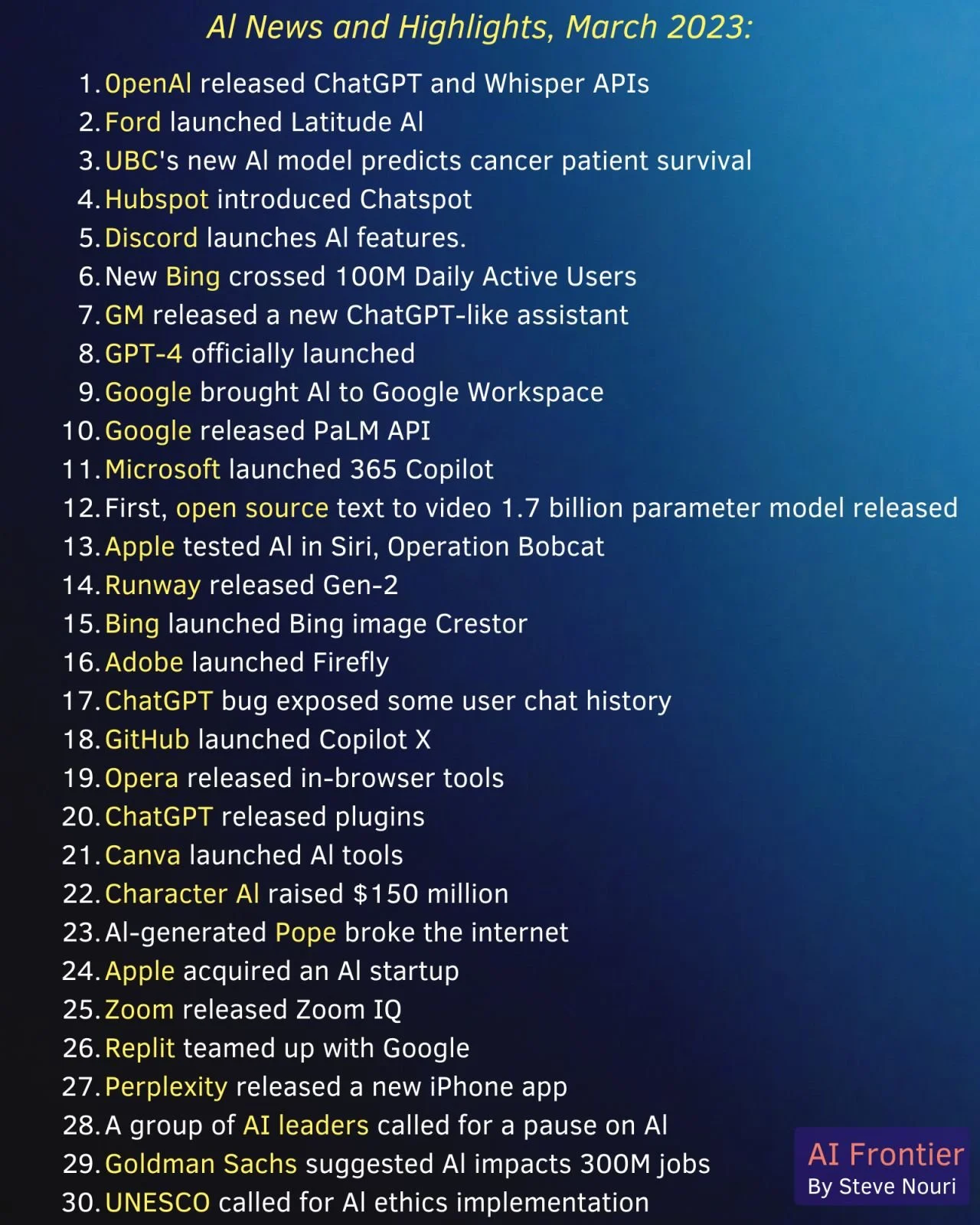By Janus Boye
In a recent member’s call Dennis Oswald nicely summarised what he labelled “gefährliches Halbwissen” about the impact of artificial intelligence. As expected, we ran out of time.
If there’s one thing 2023 has already taught us, it is that artificial intelligence will have a big impact.
Dennis Oswald is Brand Experience Manager at Netgen in Zurich and like most of us, he is just another curious human being trying to figure out what's going on with AI.
In a recent member’s call, Dennis looked at how AI will change the creative process and the broader impact for design leaders.
As expected from a field that’s cooking faster than a microwave dish, we covered quite some ground. Doing the slides for the call was a creative wakeup call according to Dennis, but I think that his presentation had the same impact on most attendees. A spicy dish that Dennis served up.
Below I’ve summarised a few highlights from the call and towards the end you can also find additional links, slides and even the entire recording. As per tradition, we started with ‘why’.
Why are all so nuts about it?
If you’ve been cooking things up for a while in the tech industry, you probably remember the arrival of bigger things, like Youtube (2005), Spotify (2006), the iPhone (2007), the iPad (2010) and perhaps let’s also include Amazon Alexa (2014) and for arguments sake Tiktok (2016).
In the opening of his deck, Dennis shared the famous graph depicting how long it’s taken to reach 100 million monthly users. It took Spotify 55 months to reach this, Tiktok 9 months and ChatGPT a mere 2 months! That’s what a new world record looks like.
Since ChatGPT 3.5 was officially introduced in late November 2022, things have moved quickly. In our groups and at our conferences, very few spoke about ChatGPT in December and January, but then in February all of the sudden almost everybody knew about it and was using it for more or less corporate sanctions purposes.
In March, Bill Gates shared a blog post which Dennis highlighted. The post from Bill had the memorable title: The Age of AI has begun, where he set the stage even bigger than those mentioned in the 100 million adoption milestone by saying that:
“Artificial intelligence is as revolutionary as mobile phones and the Internet.”
The post is worth a read as he covers the impact for productivity, health, education and also offers his take on risks, problems and the next frontier with AI.
Allright, rather than trying to stay up-to-date, what’s the impact for design leaders?
How will AI change the creative process?
Similarly to any decent cooking program, Dennis was kind enough to summarise it in plain language for us:
AI will change the creative process by making it more efficient and effective
AI will help creators to generate ideas more quickly and to evaluate and revise them more effectively
AI will also help creators to better understand their audiences and to tailor their content to meet their needs
In other words like Dennis said:
“AI changes everything”
To illustrate his point, Dennis shared a few of the things he has recently experimented with and been inspired by. Here are just a few:
“The question will not be whether we use AI tools – but which ones, when and with what intent”
- Dennis Oswald
Swiss comedian Karpi, which he both labelled his “creative AI idol” and “creative as crazy as it gets”
fantas.tiere – an Instagram account he manages as a creative pun and fun animal zoo. Sometimes, besides classic drawing, he's letting AI do the job, e.g. asking ChatGPT: “Can you think of a word pun as we trained above on “Ostrich”
Using the AI image generator Midjourney to have movie mash ups and AI dialogs
Let’s skip the part about how it works (consult the slides, see below) and the tools (refer to his quote on tools) and move onto the real issues facing AI and creativity at the moment.
AI will not replace you, but something else will happen
Before answering whether designers will disappear as a trade, Dennis opened this part of his cookbook by turning our attention to another issue. He cited a 2021 paper titled The Steep Cost of Capture by Meredith Whittaker at New York University:
“These companies control the tooling, development environments, languages, and software that define the AI research process - they make the water in which AI swims”
Meredith Whittaker is the co-founder and former Faculty Director of the AI Now Institute at NYU, a leading university institute dedicated to researching the social implications of artificial intelligence. As she writes in the abstract of the paper:
“Modern AI is fundamentally dependent on corporate resources and business practices, and our increasing reliance on such AI cedes inordinate power over our lives and institutions to a handful of tech firms”
Once again, Dennis put it in simpler terms for us:
“Garbage in, garbage out”
If the large tech vendors have fed the AI with garbage, that’s what you will get. In the brief time we had, we managed to cover some of the larger issues with the current state of AI. For your consideration:
Biased code (think gender and racial bias)
Censorship (e.g. try to use AI to work on the famous ‘sex on the beach’ cocktail)
Plagiarism & Licenses (who owns what)
Sustainability (read this before you proceed: Deep learning has a terrible carbon footprint)
Fairness & Responsibility (would you work for $2 Per Hour to Make ChatGPT Less Toxic?)
Trust & Truth (did you get fooled by the photos of Pope Francis in a puffer jacket?)
Keeping these things in mind, it's still evident that AI can enhance your creativity and has huge potential to take design leadership to the next level.
So what about the issue with you becoming obsolete as a designer? I’ll wrap up this summary post with this tweet that Dennis shared on slide 39 out of 75:
Watch the AI stuff. So much happening every day
The conversation naturally continues in our design leadership community, where you can learn from peers and hear what they are cooking when it comes to AI.
You can also meet Dennis in person in our Swiss group meetings, and he will also be among the world-class speakers at the Boye Aarhus 23 conference in November.
In a previous member's call, we looked closer at How AI will transform internal communications.
Finally, you can also download the slides (PDF) which has even more and you can also lean back and enjoy the entire recording


